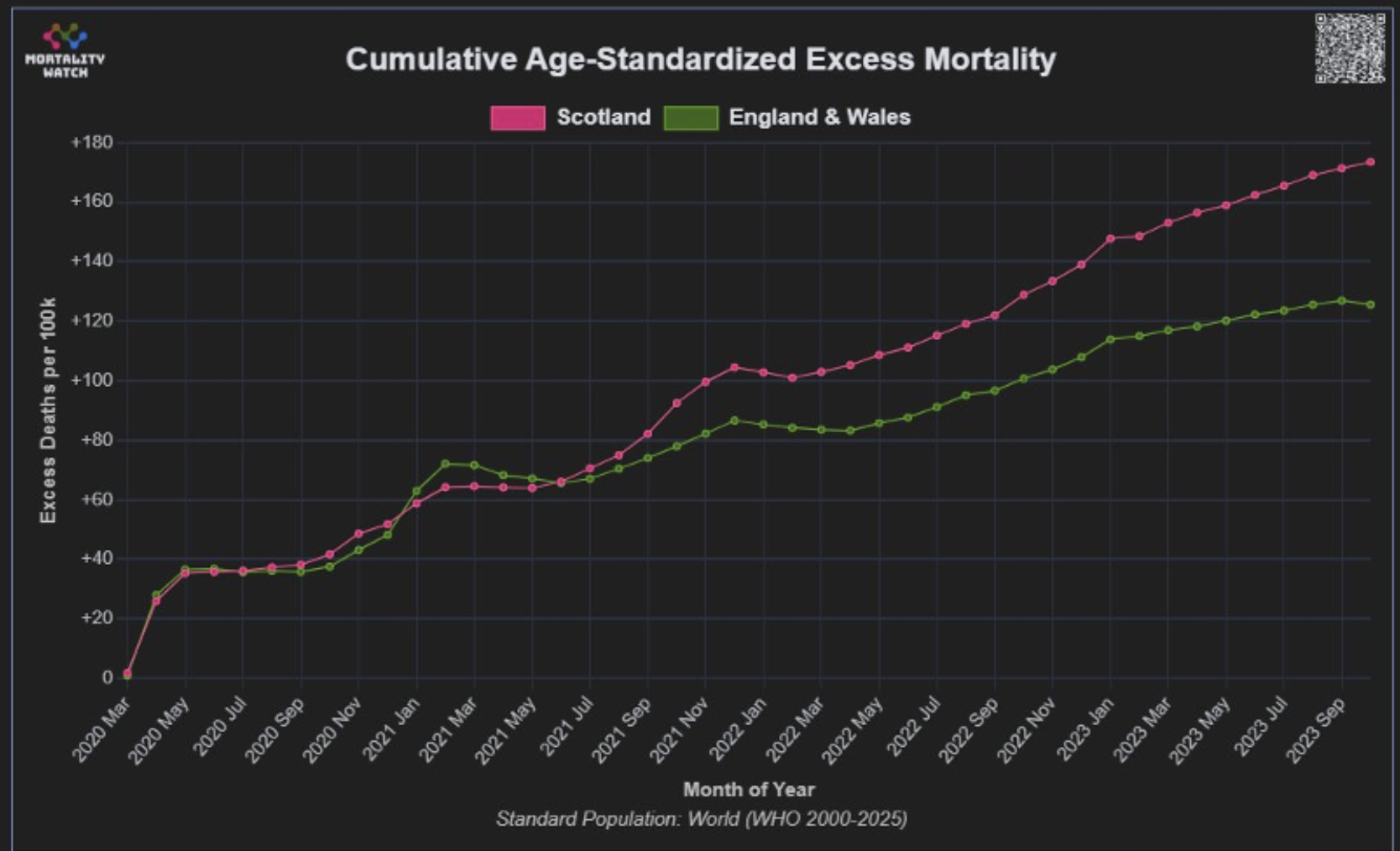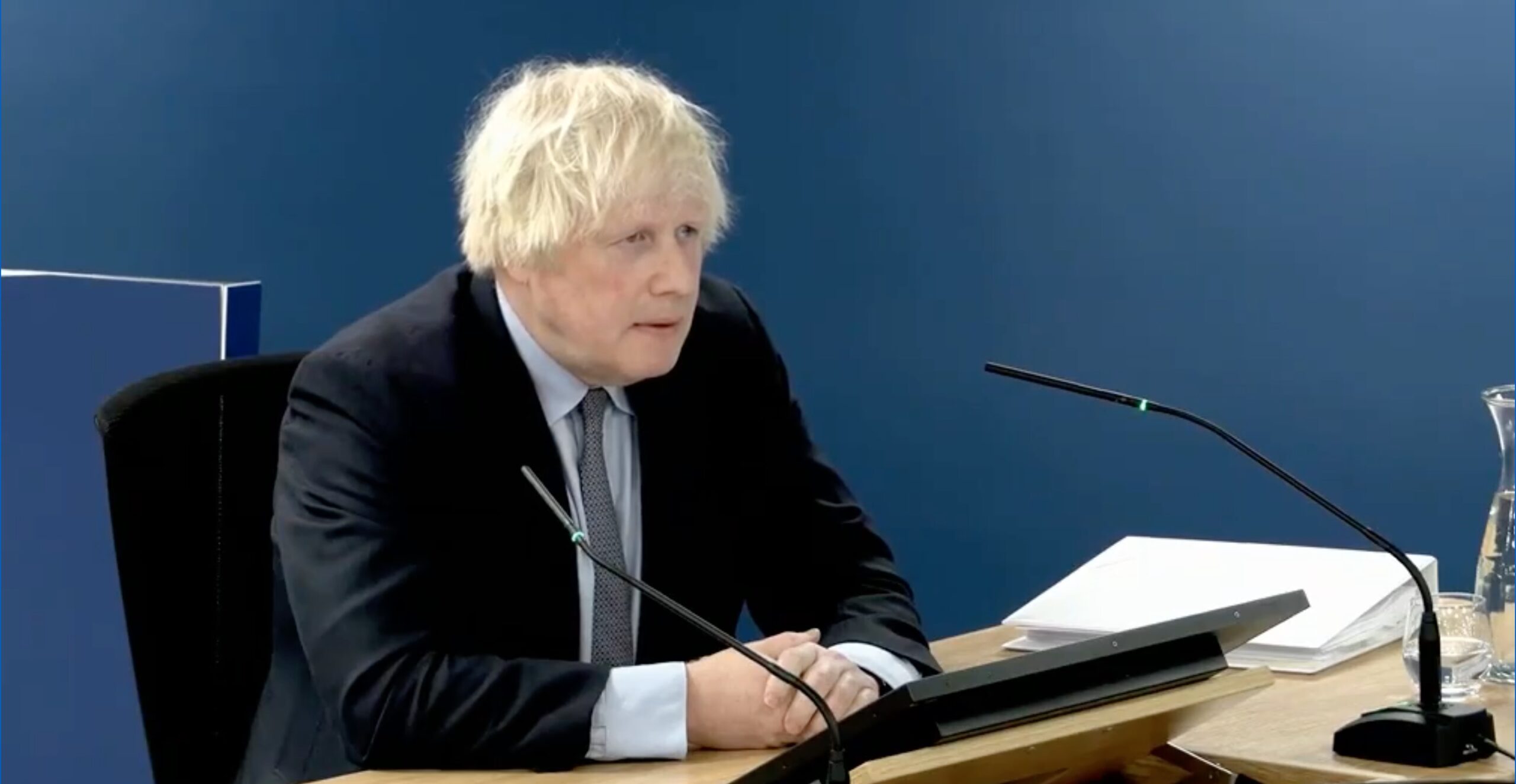As a vocal Covid dissident and lockdown opponent throughout the pandemic, watching the UK Covid inquiry these past few weeks has been a depressing experience. One gets the sense that both the people leading the inquiry and the vast majority of those questioned — the architects of the UK’s disastrously failed Covid policy — have learnt nothing.
At one point on Wednesday, Boris Johnson had a golden opportunity to get to the heart of the problem. The lead inquiry lawyer, Hugo Keith KC, asked the former prime minister whether the late March 2020 order to lock down the country was “absolutely necessary”. This was Johnson’s golden opportunity to confess the cardinal error of the UK’s pandemic strategy: that it imposed lockdown in the first place.
Instead, he averred that the UK had “no other tool” than lockdown available. Under questioning about his involvement in pandemic decision-making in January and February 2020, the ex-PM’s mea culpa centred on his regret that he had not “twigged” the seriousness of the Covid threat earlier.
One major problem with this reasoning is that by the time February 2020 rolled around, Covid was almost certainly more widespread than anyone realised because it had arrived earlier than anyone realised. In 2019, Chinese authorities delayed reporting the existence of the virus to the world. Studies of antibodies in stored blood and stored wastewater from across the globe — including Italy, the US, Brazil, and elsewhere — found traces of Covid’s presence in autumn 2019, long before the world knew about it. Even a January 2020 lockdown would have been too late: our fate was sealed once the virus was abroad in the world.
Moving forward to September 2020, Johnson faced the choice of whether to lock down again for the second Covid wave, even after the evident failure of the lockdowns to protect the population during the first wave. That September, panicked political advisors like Dominic Cummings argued for an immediate “circuit breaker” lockdown, while academics Sunetra Gupta, Carl Heneghan of the University of Oxford, and Anders Tegnell, a chief architect of Sweden’s pandemic response, called for focused protection of vulnerable people and no lockdown. After a few weeks of curfews, school disruptions and mask mandates, Johnson instituted a total lockdown on 31 October, 2020.
Despite these measures, the second Covid wave swept through England that autumn and winter. Scotland — on the advice of people like media darling Devi Sridhar — implemented its early “circuit breaker”, but also suffered through a terrible second wave. Scottish age-adjusted all-cause excess deaths are higher than in England and Wales since the pandemic’s start (as demonstrated below). There is no evidence that the circuit breaker did much except make the lives of the people of Scotland worse for a few more weeks than the English lockdown, imposed later, did.

The inquiry has been marked by a studied lack of curiosity about the great control group of the pandemic: Sweden. The country followed the traditional pandemic management strategy of focused protection of vulnerable people — especially the elderly — and non-coercive measures to avoid undue disruption in the lives of the less vulnerable. There were terrible early mistakes. Stockholm nursing homes failed to provide adequate care for the elderly in the early days of the pandemic. But Sweden did better than nearly every other country on earth in protecting human life. It has among the world’s lowest cumulative age-adjusted all-cause excess deaths since the start of the pandemic. And it accomplished this feat without lockdown.
And yet, at the inquiry on Thursday, Hugo Keith chose to mock the Swedish strategy, asking Johnson why he followed the “let it rip brigade”. Not unreasonably, the former PM informed Keith that the debate did not pit letting the virus rip against lockdown. But because of his blind allegiance to the lockdown idea, the lawyer missed the opportunity to grill Johnson about why he did not sufficiently consider the harms of the lockdowns that he ultimately implemented.
The UK is still paying the costs of this decision, in the form of schoolchildren who had their childhood disrupted for nothing, late-stage cancer patients who skipped routine screenings, persistently high inflation and slow economic growth, and a colossal mental health crisis. On the crucial topic of lockdown harms, the inquiry has been shamefully silent.











Join the discussion
Join like minded readers that support our journalism by becoming a paid subscriber
To join the discussion in the comments, become a paid subscriber.
Join like minded readers that support our journalism, read unlimited articles and enjoy other subscriber-only benefits.
Subscribe